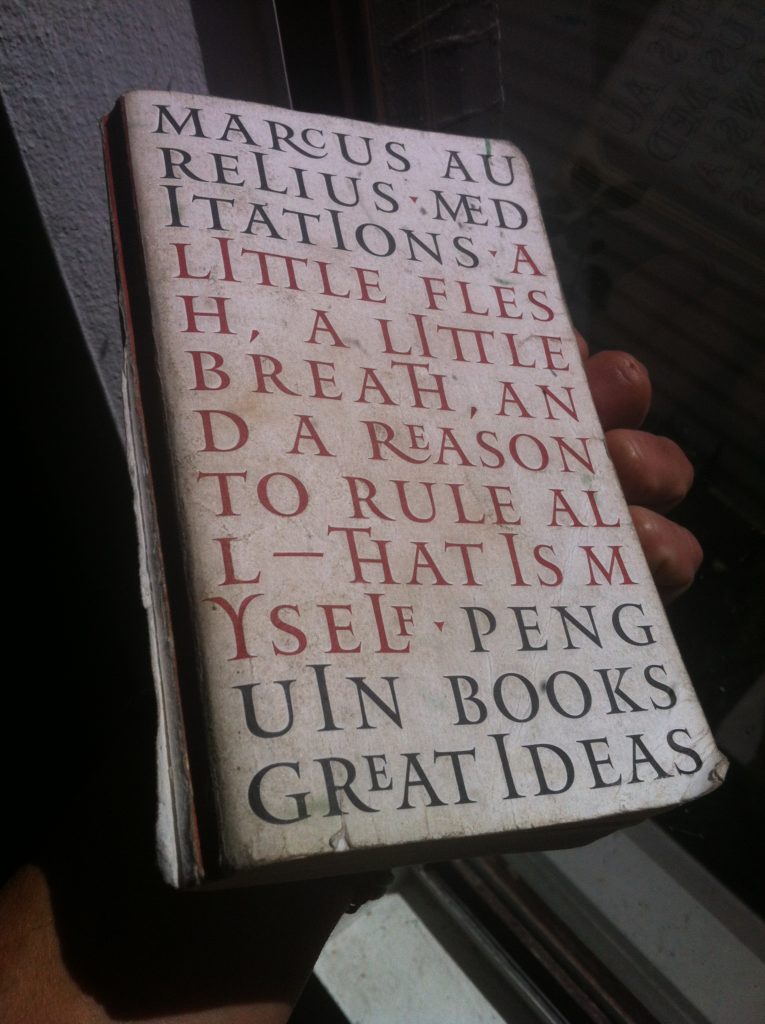6 weeks ago, my copy of Marcus Aurelius’ Meditations looked like this:


And yesterday, after consciously taking my time to read as little of it every day as possible (so as to think about and most importantly try put it into practice) I finished. Just over a month later (not 20 years, as a student of mine thought), now it looks like this:


It’s got 78,093,114,910 grains of sand embedded in the spine from reading it at the beach, and being trampled on my dog, Chunky every time it stood between him and the tennis ball he’s a nutter about. It’s also got tomato and avocado stains, bloodstains (no idea), and it’s battered, tattered and torn. It’s a bloody, vegetable-stained nightmare.
But that’s Stoicism, and what the philosophy of Marcus’ Meditations is all about. Nature, destiny, fate, providence (whatever you believe in) and all the stuff that goes on in your life is going to throw you around, and smash you about at times, but in the face of it all, you have your mind and your ‘Reason to Rule All’ to stay on course. A reason to let things out of your control just be, and to be aware that the place you came from –nature– is the same place you’re going to return to. In a blink. So use your own reason, your own mind, to live a good life. Because it’s possible during every second of life, your thoughts are entirely in your control. No one, or nothing, elses.
So what’s it about?
This is why it’s a useful guide on how to live the Good life. And this. And this. This too. And this. Yep and this. This also. Mmmhmm, yeah girlfriend, this too. And also this. And this. Also this.
There’s no way I can pick one passage from it that captures its greatness so… I don’t know… here. Here’s the last one in it.
And it’s a diamond too:
O man, citizenship of this great world-city has been yours. Whether for five years or fivescore, what is that to you? Whatever the law of that city decrees is fair to one and all alike. Wherein, then, is your grievance? You are not ejected from the city by any unjust judge or tyrant, but by the salfsame Nature which you into it; just as when an actor is dismissed by the manager who engaged him. ‘But I have played no more than three of the five acts.’ Just so; in your drama of life, three acts are all the play. Its point of completeness is determined by him who formerly sanctioned your creation, and today sanctions your dissolution. Neither of those decisions lay within yourself. Pass on your way, then, with a smiling face, under the smile of him who bids you go.
![Here’s my review of Marcus Aurelius’ Meditations (and Stoicism): Just look at the state of the book. [+ The philosophy of: Marcus Aurelius]](https://dave-mart.in/wp-content/uploads/2017/09/IMG_8387-e1504241963305-1076x1440.jpg)